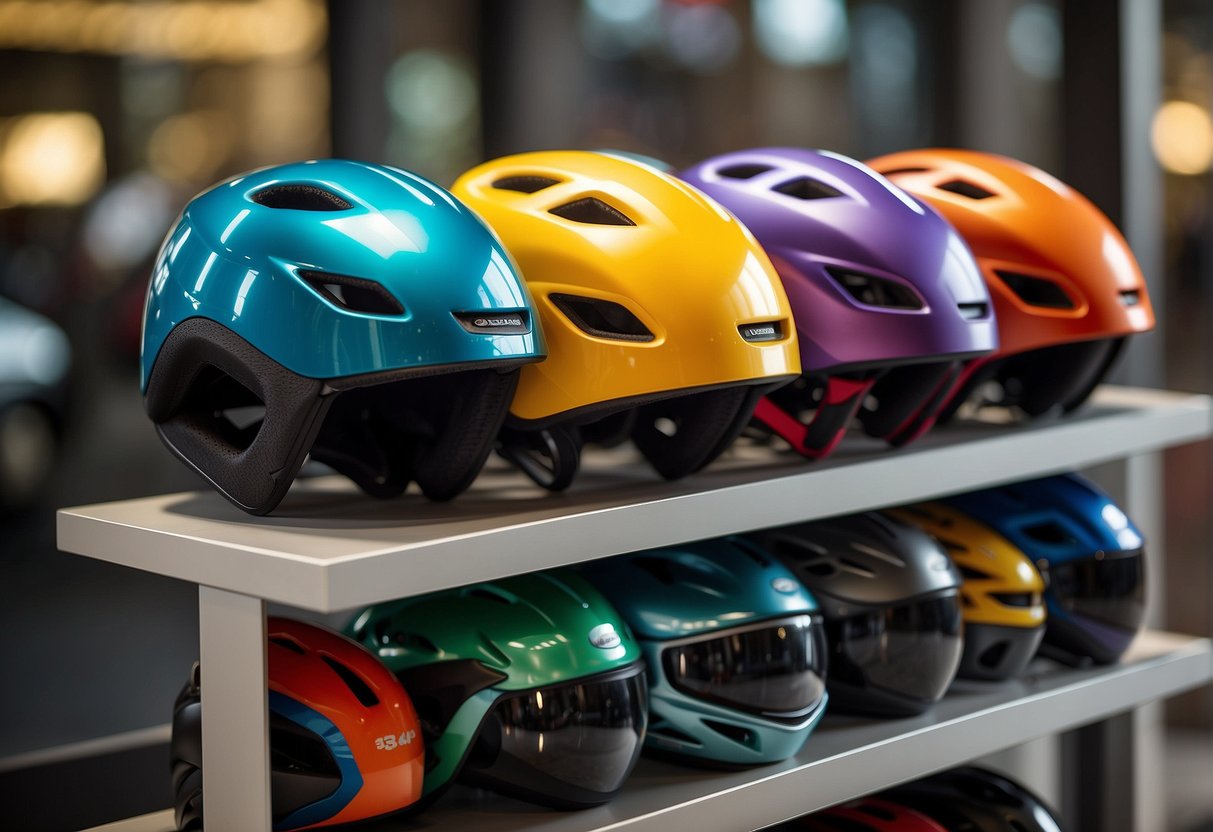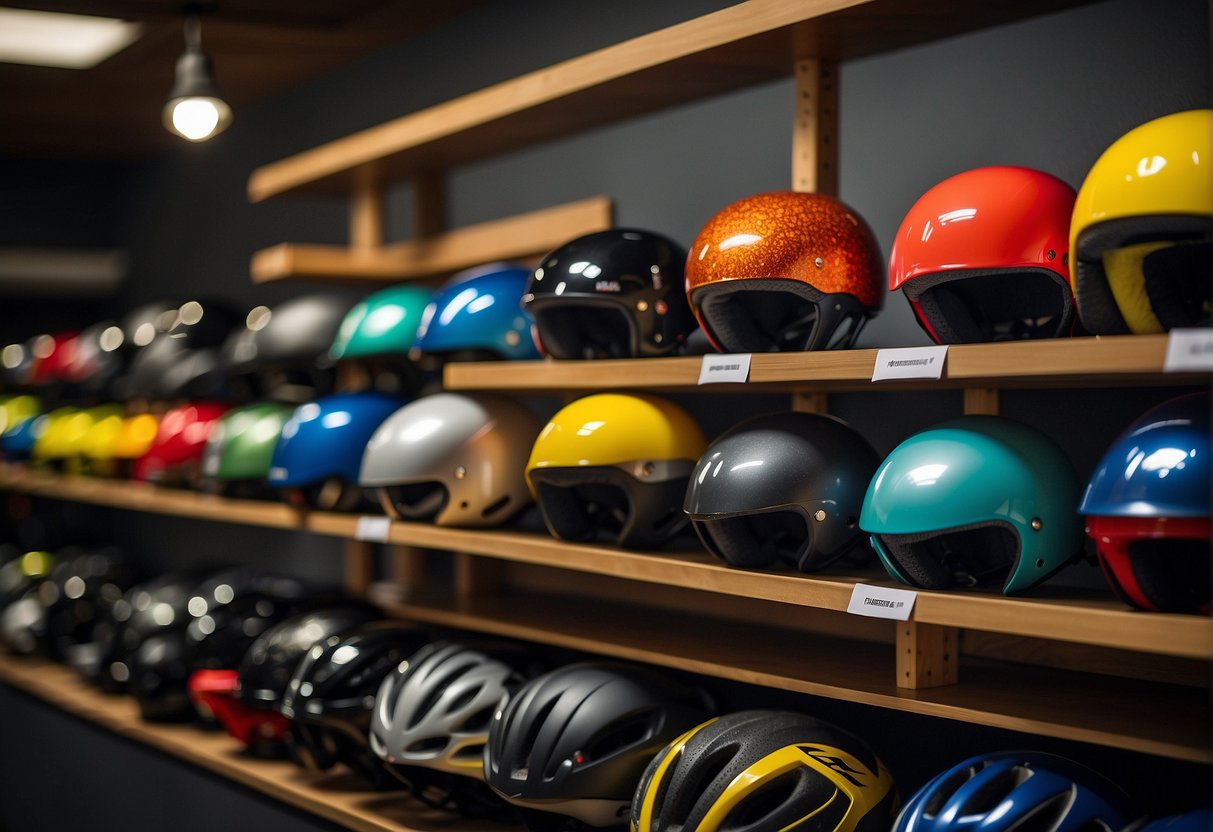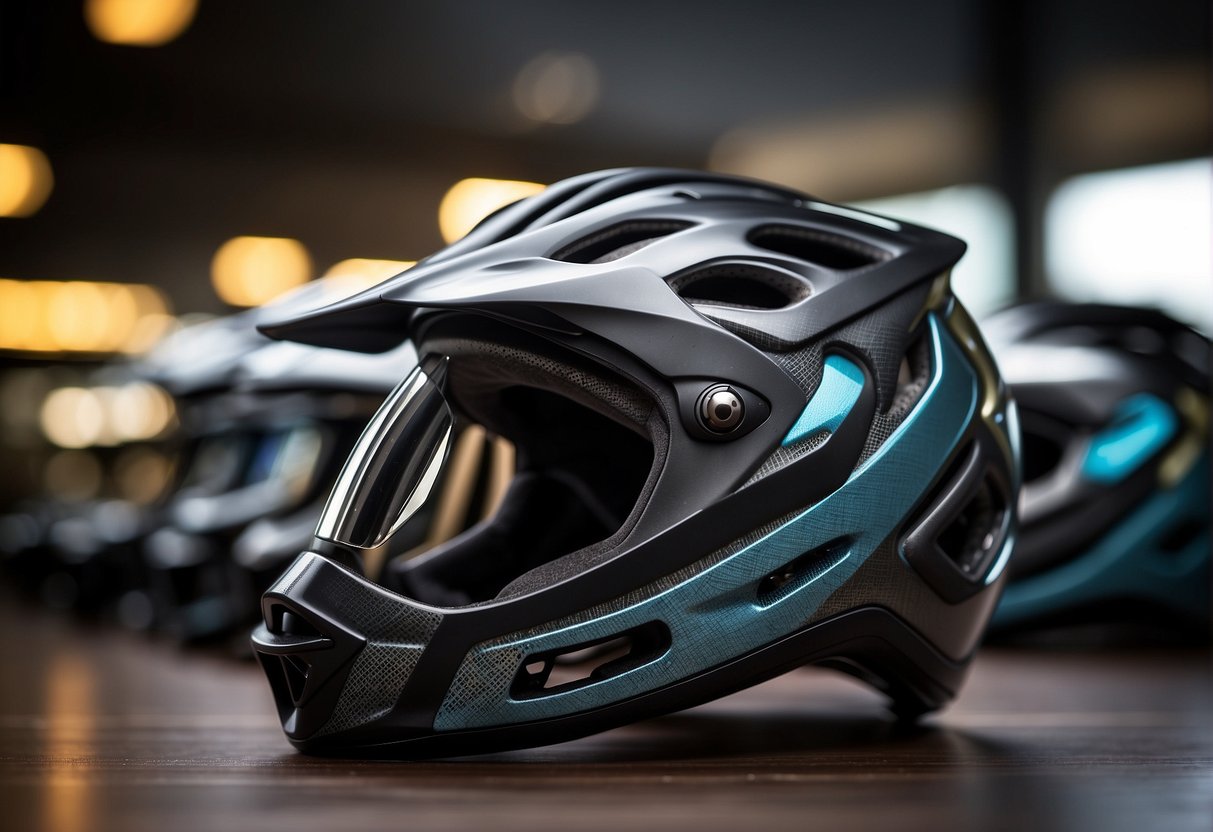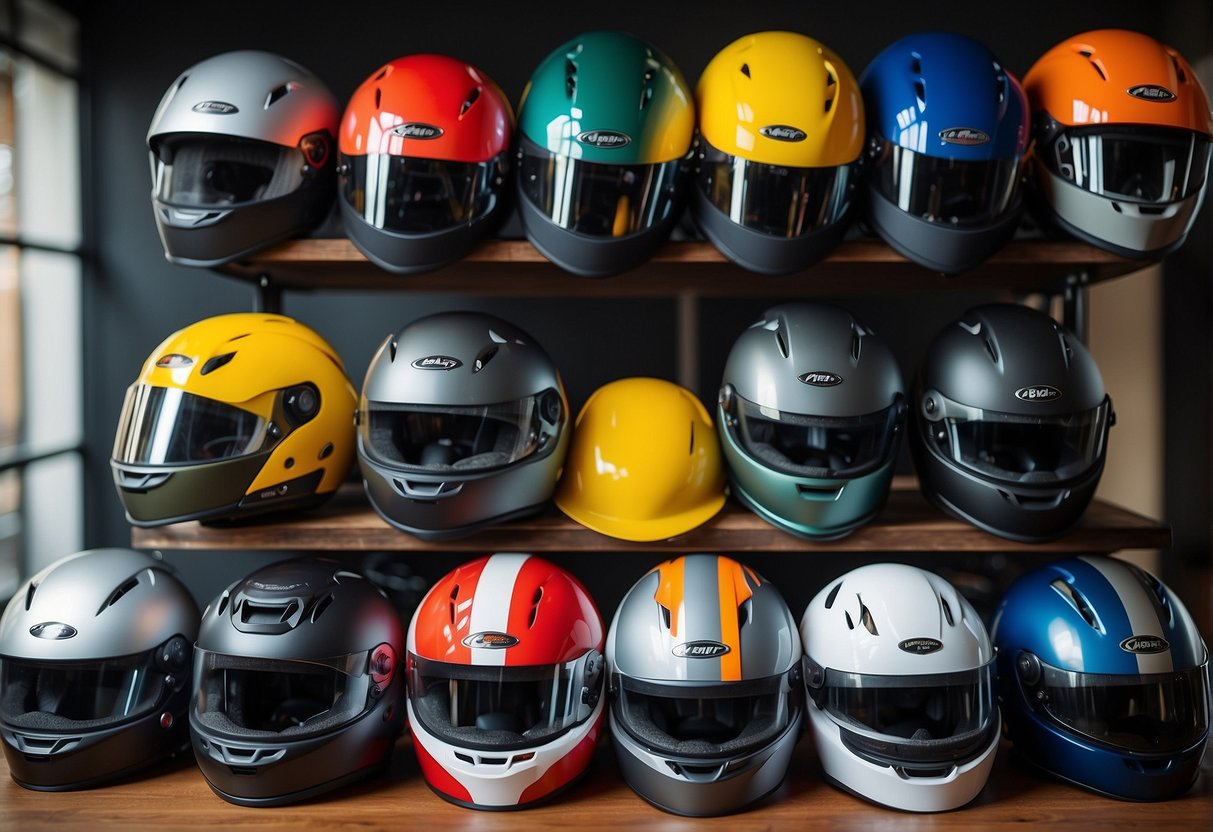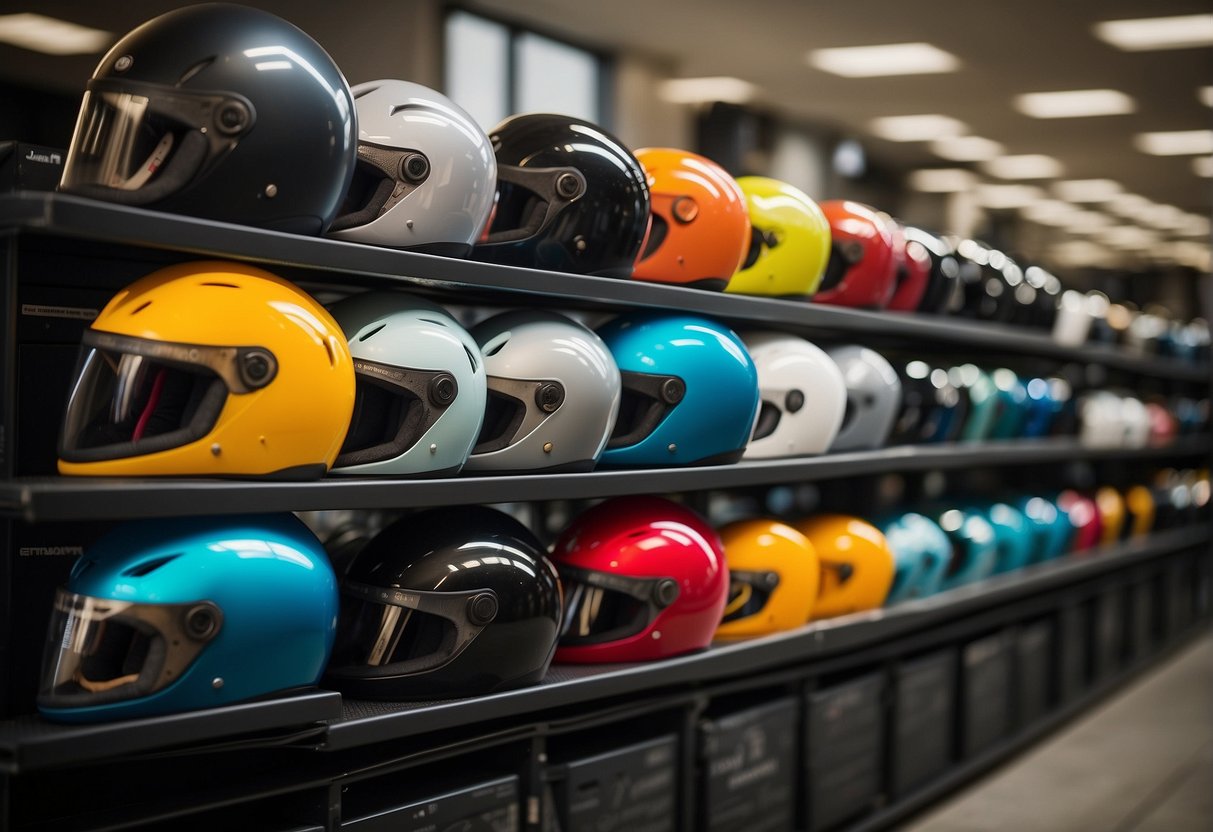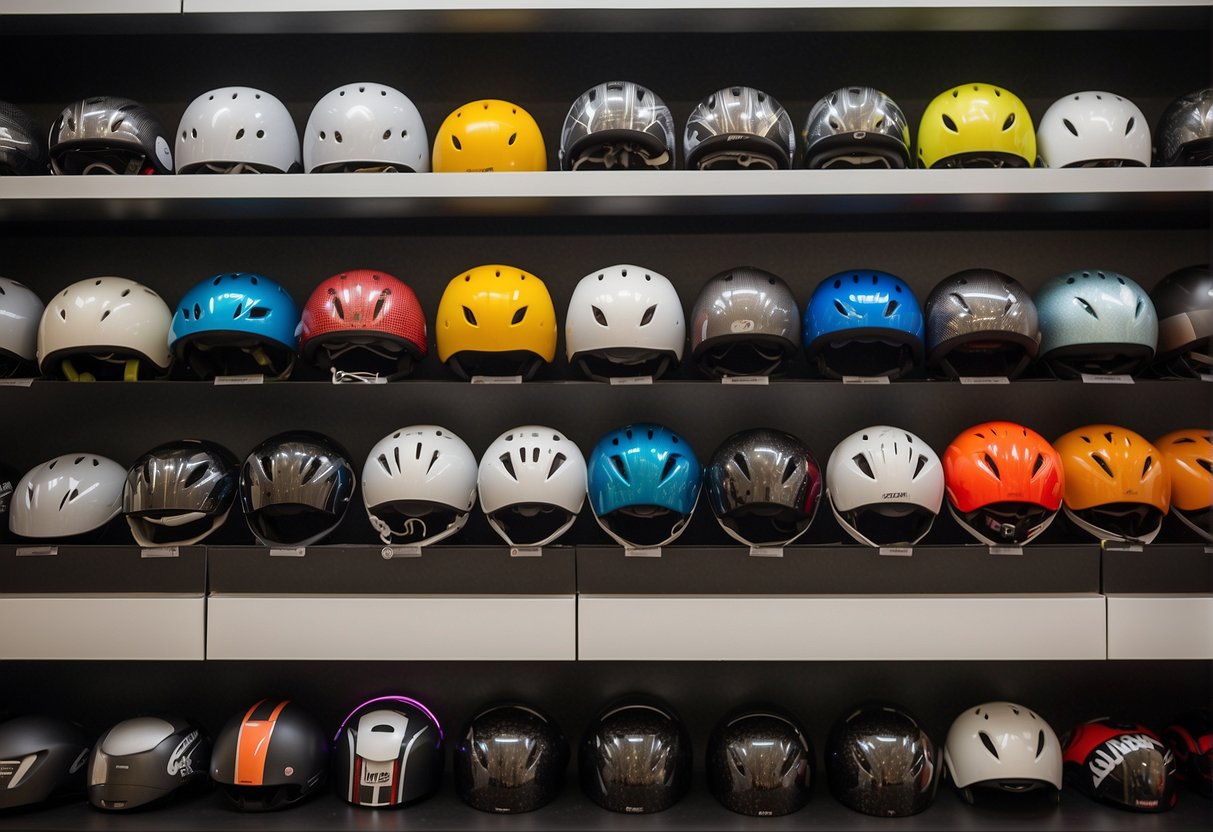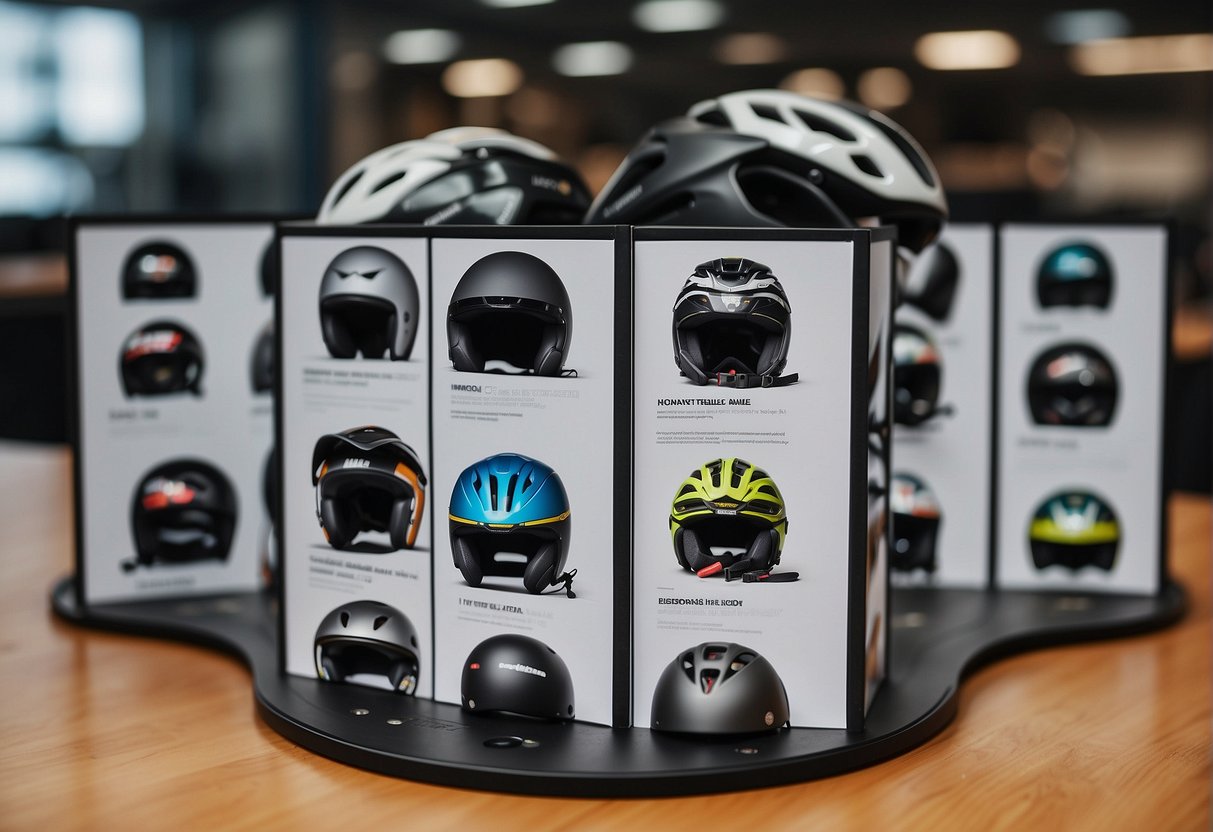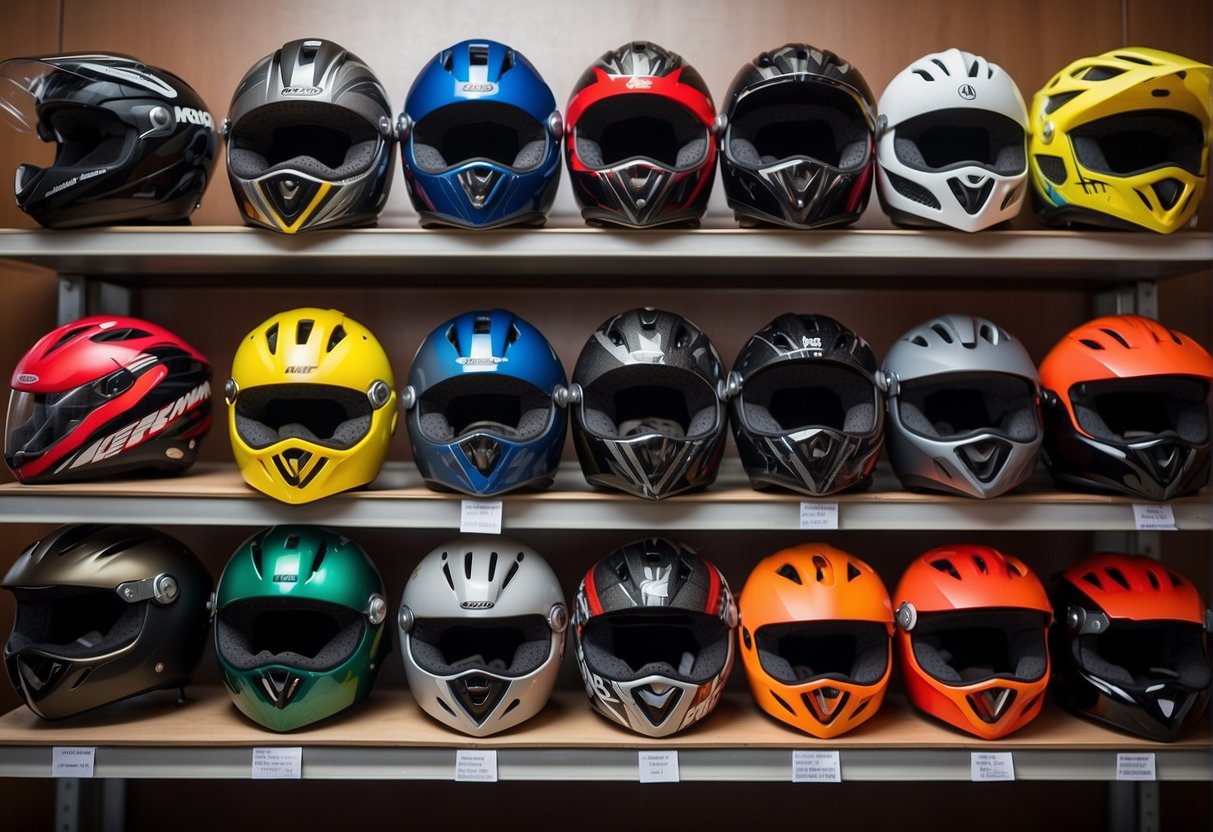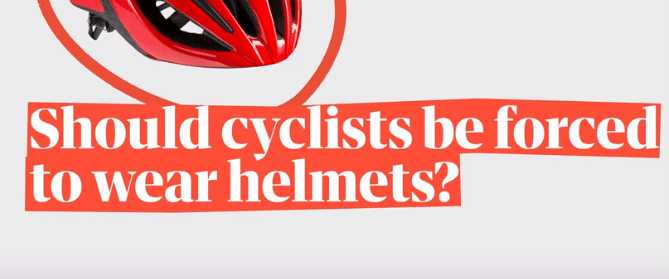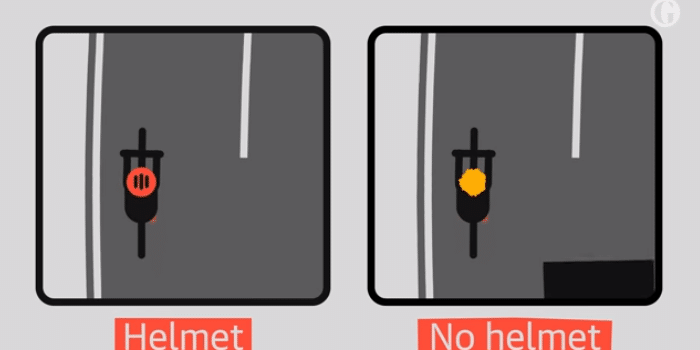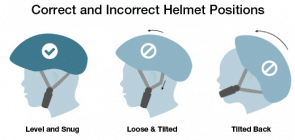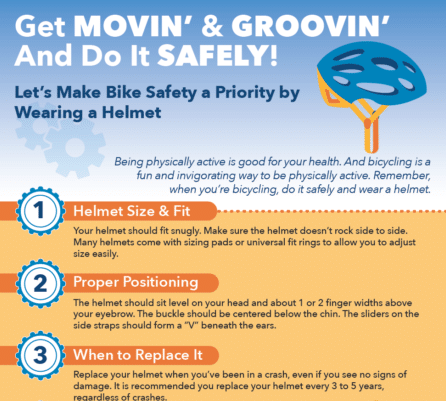Choosing the right bike helmet is crucial for the safety and comfort of cyclists. Whether cruising through city streets or adventuring on mountain trails, the helmet is the most important piece of protective gear a cyclist can wear. With a myriad of options available in the market, finding the best bike helmets involves considering several key factors that contribute to overall safety, comfort, and performance.
Advances in helmet technology and design have led to a wide range of helmet types to suit different cycling disciplines. Materials and construction methods have greatly improved, promising better impact resistance and durability. Moreover, safety standards and certifications provide a benchmark for helmet quality, ensuring that the helmets on the market meet specific safety requirements.
Key Takeaways
- A bike helmet must fit properly to provide maximum protection.
- Innovative safety features and materials enhance helmet effectiveness.
- Selecting a helmet should involve considering safety standards, comfort, and intended use.
The Importance of Helmet Fit
A properly fitted helmet is crucial for protection and comfort during cycling. It must sit securely on the head to effectively absorb impacts and reduce the risk of injury.
Measuring Your Head
To determine the correct helmet size, one must measure their head circumference. Position a flexible tape measure just above the eyebrows and around the largest part of the back of the head. The measurement in centimeters corresponds to the helmet size. For optimal fit, the helmet should match the head circumference with minimal gaps.
- Head Circumference Range (cm)
- Small: 51-55
- Medium: 55-59
- Large: 59-63
- Extra Large: 63+
Adjusting the Chin Strap
The chin strap is vital for helmet security. It should be tightened so that only one or two fingers can fit between the strap and the chin. Adjustments are made by sliding the straps through the buckles to achieve a snug fit.
- Chin Strap Checklist
- Tightness: No more than two fingers between strap and chin
- Position: The strap forms a ‘V’ shape under the ears
Ensuring Snug and Comfortable Contact
For the helmet to remain stable, it should make comfortable contact with the head. High-quality helmets often feature the BOA fit system, which allows for precise adjustments. A helmet that is very comfortable will have even padding distribution and minimal movement when the head is shaken.
- Comfort & Stability Factors
- Padding: Evenly distributed around the head
- Fit System: Presence of a dial (e.g., BOA fit system) for micro-adjustments
- Movement: Limited to no shift when head is tilted or shaken
Innovations in Helmet Safety
Recent years have seen significant advancements in helmet safety, focusing on reducing the incidence and severity of brain injuries. Manufacturers have introduced revolutionary technologies that offer better protection during angular impacts, which are common in cycling accidents.
MIPS Technology: A Revolution in Rotation Protection
MIPS (Multi-Directional Impact Protection System) has become a key player in helmet safety. It is a low-friction layer inside the helmet that allows for a slight rotation of the head during an angular impact. This movement helps to reduce the rotational forces which can cause concussion.
- Function: Mimics the brain’s protective fluid
- Goal: Mitigate the force from angular impacts
WaveCel: The Latest in Accident Protection
WaveCel technology is a more recent development characterized by a collapsible cellular structure that lines the inside of helmets. Upon impact, WaveCel material crumples, flexes, and glides, which absorbs energy and protects the head from direct forces.
- Design Feature: Accordian-like cells
- Benefit: Absorbs both rotational and straight-on impacts
SPIN: Shearing Pads Inside
The SPIN technology (Shearing Pads INside) incorporates silicone-injected pads in the helmet’s interior. These pads allow for a multidirectional shearing movement during an angled impact, intended to reduce the force transmitted to the brain.
- Key Aspect: Silicone pads move in all directions
- Impact Reduction: Designed for oblique impacts
Types of Bike Helmets
Bike helmets are designed to cater to different styles of biking, each with unique features suited to specific needs. Whether for rugged mountain trails or the sleek pavement of a time trial, helmets provide safety and performance enhancements tailored to the cyclist’s environment.
Trail-Ready: Mountain Bike Helmets
Mountain bike helmets offer enhanced rear head coverage and a visor to protect against low-hanging branches and the sun’s glare. Construction often features reinforced in-mold designs to withstand the impacts typical of trail riding. They are vented adeptly for cooling while maintaining structural integrity.
For the Road: Road Bike Helmets
Road helmets prioritize lightweight construction and ventilation. They typically possess a sleek design with ample airflow channels to reduce drag and keep the rider cool during long rides on pavement. Premium road helmets might also include advanced materials for impact absorption without excess weight.
Urban Commuting: Stylish Commuter Helmets
Commuter helmets blend functionality with style, often featuring a more casual look suitable for the city environment. They may include integrated lights for visibility and a less sporty, more subtle aesthetic. This category focuses on comfort and practicality for daily use with a nod to stylish sensibilities.
High Speed: Aerodynamic Time Trial Helmets
Aerodynamic time trial helmets are built for speed, boasting a teardrop shape to reduce air resistance to a minimum. These helmets often extend over the back of the head and may include a shield to cover the face, optimizing airflow across the helmet for high-speed cycling in competitive environments.
Key Helmet Features to Consider
When selecting a bike helmet, key features such as effective ventilation, lightweight construction, and added functionalities like visors and lights play a crucial role in rider safety and comfort.
Ventilation and Airflow
A helmet’s ventilation is critical for maintaining a comfortable head temperature during rides. Helmets with excellent ventilation typically have multiple vents that facilitate airflow over the rider’s head. A well-ventilated helmet should have a balance between the number of vents and their size to maximize air circulation without compromising the helmet’s structural integrity.
- Example: A helmet with 22 large vents offers enhanced airflow over one with many small vents, as the larger vents facilitate better air movement.
Weight and Comfort
The weight of a helmet influences the rider’s comfort, especially on longer rides. A lightweight helmet can reduce neck fatigue and improve the overall riding experience. Comfort also includes the padding and ergonomic design inside the helmet that conforms to the rider’s head shape.
- Key Specification: Helmets under 300 grams are considered lightweight and more comfortable for extended periods of use.
Added Features: Visors and Lights
Additional features on helmets include visors and built-in lights. Visors provide shade and protect the eyes from debris, while lights enhance the visibility of the cyclist, beneficial for evening or early morning rides.
- Visor: A detachable visor is versatile for both road riding and off-road excursions.
- Built-in Lights: Rear LED lights, often with multiple modes, are essential for alerting road users to the cyclist’s presence.
Helmet Materials and Construction
Bike helmets rely on a blend of materials optimized for impact resistance, comfort, and durability. The section below unpacks the specifics of EPS foam, polycarbonate shells, and carbon fiber—key components in modern helmet construction.
EPS Foam and Its Significance
Expanded Polystyrene (EPS) foam is the core material used in bike helmets for its exceptional ability to absorb impact. EPS foam liners act as a cushion during collisions, dissipating force to reduce potential brain injuries.
Polycarbonate Shells and Durability
A polycarbonate shell is the outer layer of a bike helmet, designed to provide additional strength without significant weight increase. This shell, often attached via in-mold construction, ensures the helmet remains intact upon impact and protects the EPS foam liner from abrasions.
Advanced Materials: Carbon Fiber
High-performance helmets may incorporate a carbon fiber shell, which offers an unrivaled strength-to-weight ratio. Carbon fiber enhances durability and provides a sleek aesthetic without compromising the helmet’s protective capabilities.
Choosing Helmets for Different Age Groups
Selecting a bike helmet requires considering the distinct needs of different age groups. Safety standards and fit are paramount, while adults may seek additional features such as aerodynamics or connectivity.
Kids’ Safety and Customization
When choosing helmets for kids, safety exceeds all other criteria. Helmets for children must meet the safety standards set by authorities like the Consumer Product Safety Commission (CPSC). A proper fit is crucial to ensure maximum protection. Therefore, a good helmet should come with adjustable straps and a sizing wheel for a secure and comfortable fit.
- Adjustment Features:
- Sizing wheel for precise fit
- Adjustable chin straps
Moreover, kids are more likely to wear helmets that appeal to them visually. Manufacturers offer a wide range of colors and designs to encourage children to wear helmets. Reflective materials for visibility and lightweight construction for comfort are also common features.
- Design Factors:
- Bright colors, patterns
- Reflective elements for visibility
Helmets Suited for Adults
Adult helmets cater to a variety of riding styles, from casual commuting to competitive racing. All adult helmets should meet the relevant safety standards, and fit is just as important to ensure effectiveness. Advanced features may include integrated lighting for visibility, ventilation for cooling, and materials such as EPS foam and polycarbonate shells for impact absorption and durability.
- Safety and Comfort:
- Must meet CPSC standards
- Proper ventilation systems
- Moisture-wicking padding
For road cyclists or those interested in aerodynamics, helmets come with streamlined designs to reduce drag. Connectivity features such as Bluetooth can offer convenience for riders looking to integrate their mobile devices.
- Advanced Features:
- Aerodynamic shapes for road cyclists
- Built-in communication systems
Helmet Safety Standards and Certifications
When selecting a bike helmet, it’s essential to consider the safety standards and certifications that indicate rigorous testing for protection during impacts. The Consumer Product Safety Commission (CPSC) certification and Virginia Tech Helmet Ratings are two key benchmarks for evaluating helmet safety.
Understanding CPSC Standards
The CPSC is a U.S. government agency responsible for enforcing safety standards for numerous consumer products. CPSC standards for bike helmets are designed to ensure that helmets can effectively protect against impacts that could occur during a bike accident. Helmets that meet these standards contain a CPSC sticker, showcasing their compliance with certain minimum safety criteria. Under CPSC standards, helmets are subjected to a series of tests including:
- Impact resistance
- Strap strength tests
- Coverage extent
These tests simulate various impact scenarios to ascertain a helmet’s capability to reduce forces upon the wearer’s head during a crash.
Virginia Tech Helmet Ratings
Moving beyond mere compliance, Virginia Tech’s Helmet Rating method offers a more nuanced evaluation of helmet safety. This evaluation system ranks helmets based on their ability to reduce concussive forces experienced during impact. The Virginia Tech rating system applies a star score, from one to five, with five stars indicating the highest level of protection. Helmets undergo a battery of impact tests, mimicking different crash scenarios. Variables such as:
- Angled impacts
- Multiple impact velocities
- Several locations on the helmet
are assessed to determine the helmet’s ability to mitigate the risk of concussions. The results of these tests contribute to an overall helmet safety score that consumers can trust for selecting high-quality protective gear.
Price and Value Considerations
Selecting a bike helmet involves assessing the balance between cost and potential safety provided. Riders must weigh their budget against the features and protection levels they prioritize.
Balancing Cost and Quality
The market offers a wide range of helmets with varying costs, but a higher price does not always guarantee superior quality. Key factors influencing price include the materials used, the brand, and any additional features such as integrated lights or MIPS technology. Consumers should look for certifications like the CPSC standard in the United States, which can ensure a baseline of safety without necessitating a high expense.
- Materials: Polycarbonate shells with EPS liners are common in mid-range helmets.
- Brand: Established brands might charge more due to reputation.
- Features: MIPS can add to cost; shoppers should evaluate if they need this technology.
Affordable Options for Every Rider
Every cyclist can find an affordable helmet that offers great value. Entry-level helmets can cost as little as $20-$50 and still meet safety standards.
- Under $50: Basic protection, often with fewer ventilation holes.
- $50-$100: Increased comfort and enhanced features like adjustable fittings.
- Above $100: Advanced materials and features, designed for specific cycling disciplines.
Riders should note that while affordable helmets can provide the necessary safety features, they may lack the comfort or advanced technology of higher-end models. It is essential to try on helmets within one’s budget to find the best fit and value.
Additional Gear for Cyclists
In addition to selecting a quality helmet, cyclists should invest in reliable gear for bike security and visibility. The market offers diverse options for both bike locks and lights to enhance the cycling experience.
Securing Your Bike: The Best Bike Locks
When leaving a bike unattended, even for a short period, a sturdy bike lock is essential. Two of the most reliable bike locks in the industry are the Kryptonite New York Fahgettaboudit Mini and the ABUS Granit XPlus 540. The former offers a dual-locking, hardened MAX-Performance steel shackle that resists bolt cutters, while the latter features a parabolic square shackle made from hardened steel for increased theft protection.
| Bike Lock Model | Material | Security Feature |
|---|---|---|
| Kryptonite New York Mini | Hardened Steel | Double Deadbolt |
| ABUS Granit XPlus 540 | Hardened Steel | Power Cell Technology |
Visibility on the Road: Bike Lights
Proper lighting is crucial for safe cycling, ensuring that one is visible to other road users during low-light conditions. The NiteRider Lumina OLED 1200 Boost provides powerful illumination with programmable brightness levels, while the CygoLite Metro Pro 1100 offers impressive light output and multiple modes tailored for any riding situation.
| Bike Light Model | Maximum Output (Lumens) | Notable Function |
|---|---|---|
| NiteRider Lumina OLED 1200 | 1200 | Programmable Settings |
| CygoLite Metro Pro 1100 | 1100 | SteadyPulse Mode |
These lighting systems are easily rechargeable and feature water-resistant construction, ensuring they can handle various weather conditions.
Maintenance and Care for Bike Helmets
Proper maintenance and care are crucial for the longevity and effectiveness of bike helmets. They ensure the helmet continues to provide optimal protection.
Regular Inspection and Cleaning
One should inspect their bike helmet regularly for signs of wear and tear. It is important to look for cracks, dents, and any damage to the foam or outer shell. Sweat and oils from skin can break down helmet materials over time, so cleaning is essential. To clean a helmet, use mild soap and water, avoiding harsh chemicals, which can degrade the materials. Allow the helmet to air dry, as excessive heat can warp the helmet’s structure.
-
Look for:
- Cracks
- Dents
- Damage to foam
-
Cleaning steps:
- Mild soap and water
- Gentle wash
- Air dry
When to Replace Your Helmet
Helmets must be replaced after any significant impact, even if no damage is visible, as the protective materials may be compromised. Manufacturers typically recommend replacing helmets every 3 to 5 years, as materials can deteriorate over time, especially with regular use. Additionally, if the fit or retention system fails, a new helmet is necessary to ensure proper protection.
-
Replace after:
- Significant impact
- Visible damage
- 3 to 5 years of use
-
Check for:
- Deterioration
- Compromised materials
- Fit and retention system failure
Frequently Asked Questions
Browse these FAQs to get informed answers about the latest and most reliable bike helmets, with a focus on safety, technology, and style.
What are the top-performing bike helmets featuring MIPS technology?
MIPS technology helmets are designed to reduce rotational forces that can result from certain impacts. The Giro Syntax MIPS, Bell Zephyr MIPS, and Troy Lee Designs A2 MIPS consistently rank high for their advanced safety features and superior performance.
Which brands are known for producing the safest bike helmets?
Brands like Giro, Bell, and Specialized are renowned for their commitment to safety. They invest in extensive research and rigorous testing to ensure their helmets offer maximum protection.
Can you recommend some stylish helmets that do not compromise on safety?
The POC Omne Air Spin combines a sleek, attractive design with SPIN technology for safety, while the Nutcase Street Helmet offers fun patterns and robust protection. Both prioritize looks without undercutting security.
What criteria should be considered when choosing a racing bike helmet?
For racing helmets, aerodynamics, weight, cooling ventilation, and a snug fit are crucial. Helmets such as the Kask Protone and the S-Works Evade by Specialized are top choices that meet these requirements.
What are the best road bike helmets currently available for adults?
The best road bike helmets offer a blend of ventilation, lightness, comfort, and safety. The S-Works Prevail II and Bontrager Velocis MIPS are leading examples favored by adult cyclists for their exceptional features and comprehensive protection.
How effective are different bike helmets in preventing concussions?
No helmet can guarantee complete prevention of concussions, but designs incorporating MIPS or WaveCel technology, like those from Bontrager and Lazer, have been shown to greatly lower the risk of concussion-causing impacts compared to helmets without such features.
Bike Helmets
Choosing the right helmet is as important as choosing the right bike. You want something that fits the way you ride, your style, and your budget. There are three main types, and you can find excellent examples of each: Road helmets are sleek and prioritize venting and low weight. Mountain bike helmets provide more coverage because crashes are more likely and usually have a visor. Commuter and everyday helmets offer a bit more casual style and less venting, since you’ll typically be sweating less in them.
All helmets sold in the US meet the same basic safety standards. Beyond that you’re paying for features: Better ventilation, lower weight, enhanced fit systems, and nicer designs. Some helmets do offer added safety features to protect against brain injuries, but know that any helmet you buy will protect your skull the same way against an impact. So you don’t necessarily need to spend a lot to get a good helmet.Source
Should you wear a bike helmet?
The Guardian’s Peter Walker explains this does not help save lives. Despite a series of helmet promotion campaigns, a growing amount of evidence suggests forcing people to wear protective headgear leads to greater risk-taking and can even put people off cycling altogether, exacerbating the crises in obesity and inactive living
Bike Helmet Top Picks
Source
Bicycle Helmet Infographic
Perhaps we’ll never all agree on the helmet debate, but certain facts are irrefutable.
Source
Make Sure Your Bike Helmet Fits
Assure a snug fit, it shouldn’t tilt side to side or front to back. The side straps should form a Y with the buckles just below the ears. The helmet should rest evenly on the head, just one or two finger widths above the eyebrows.
Source


